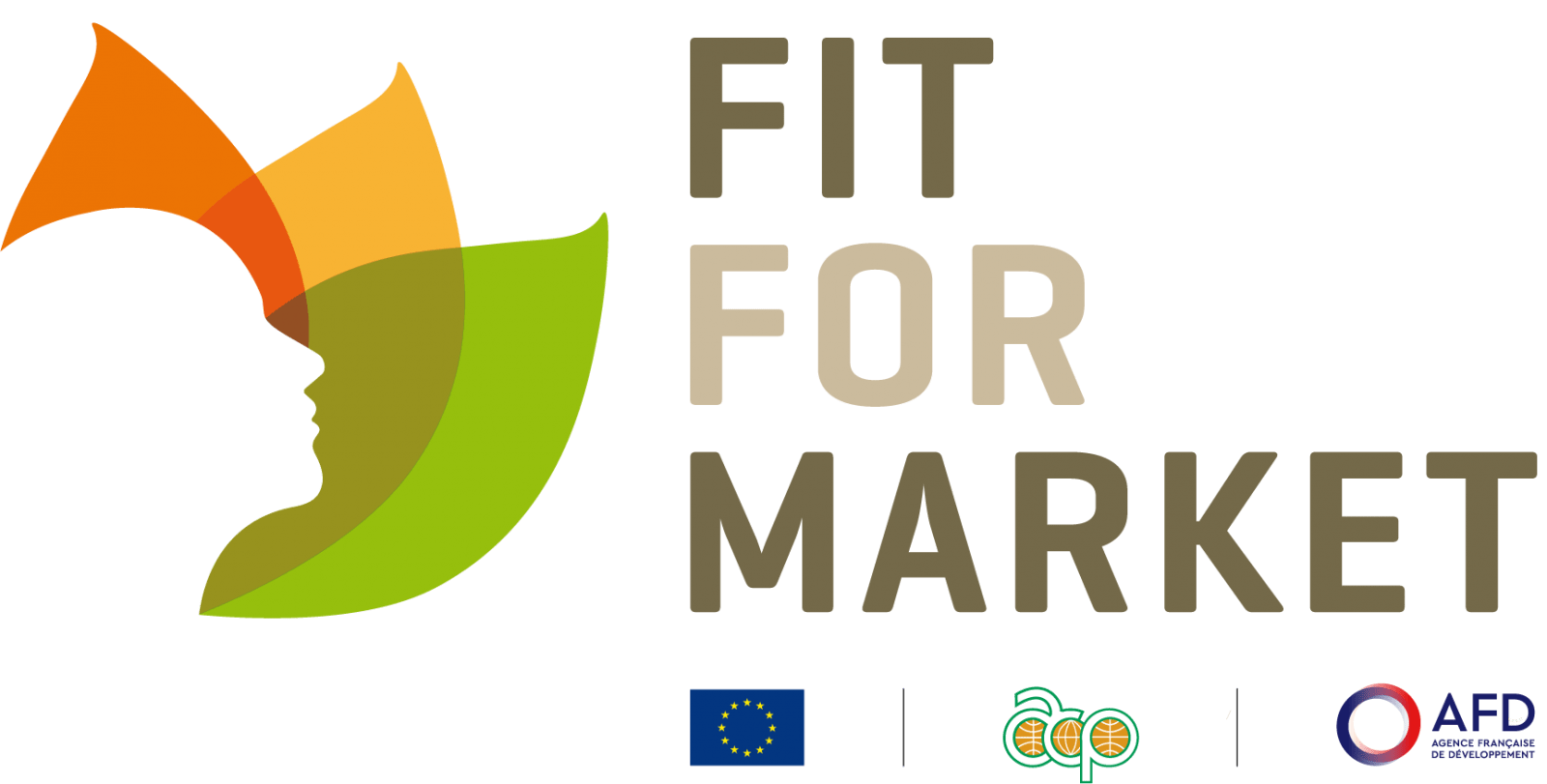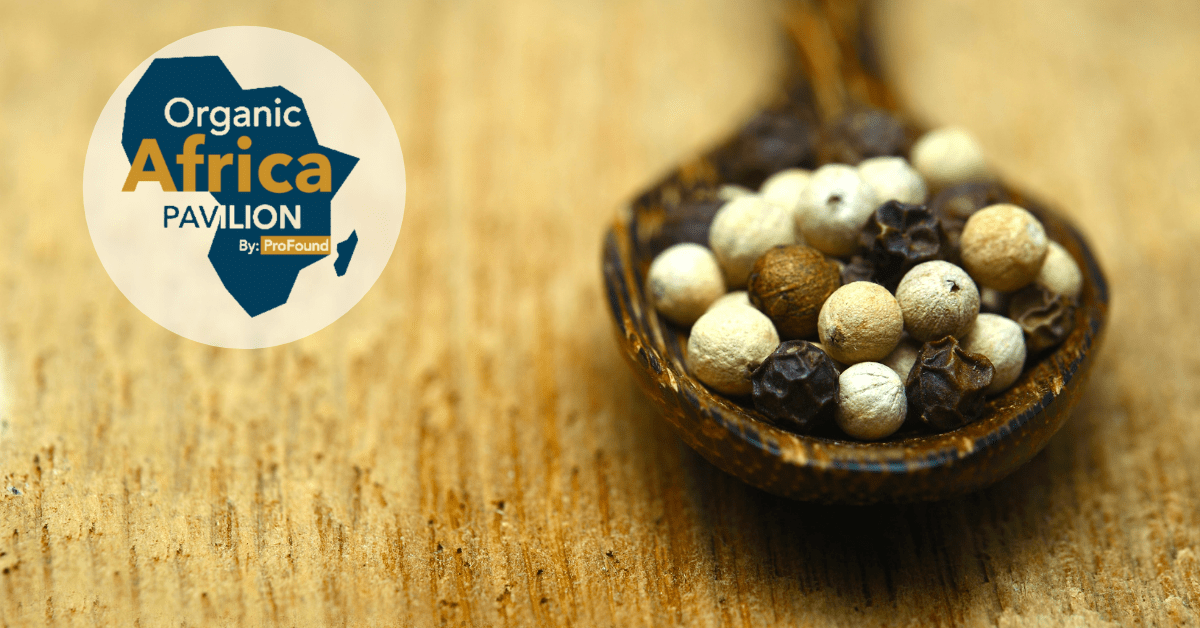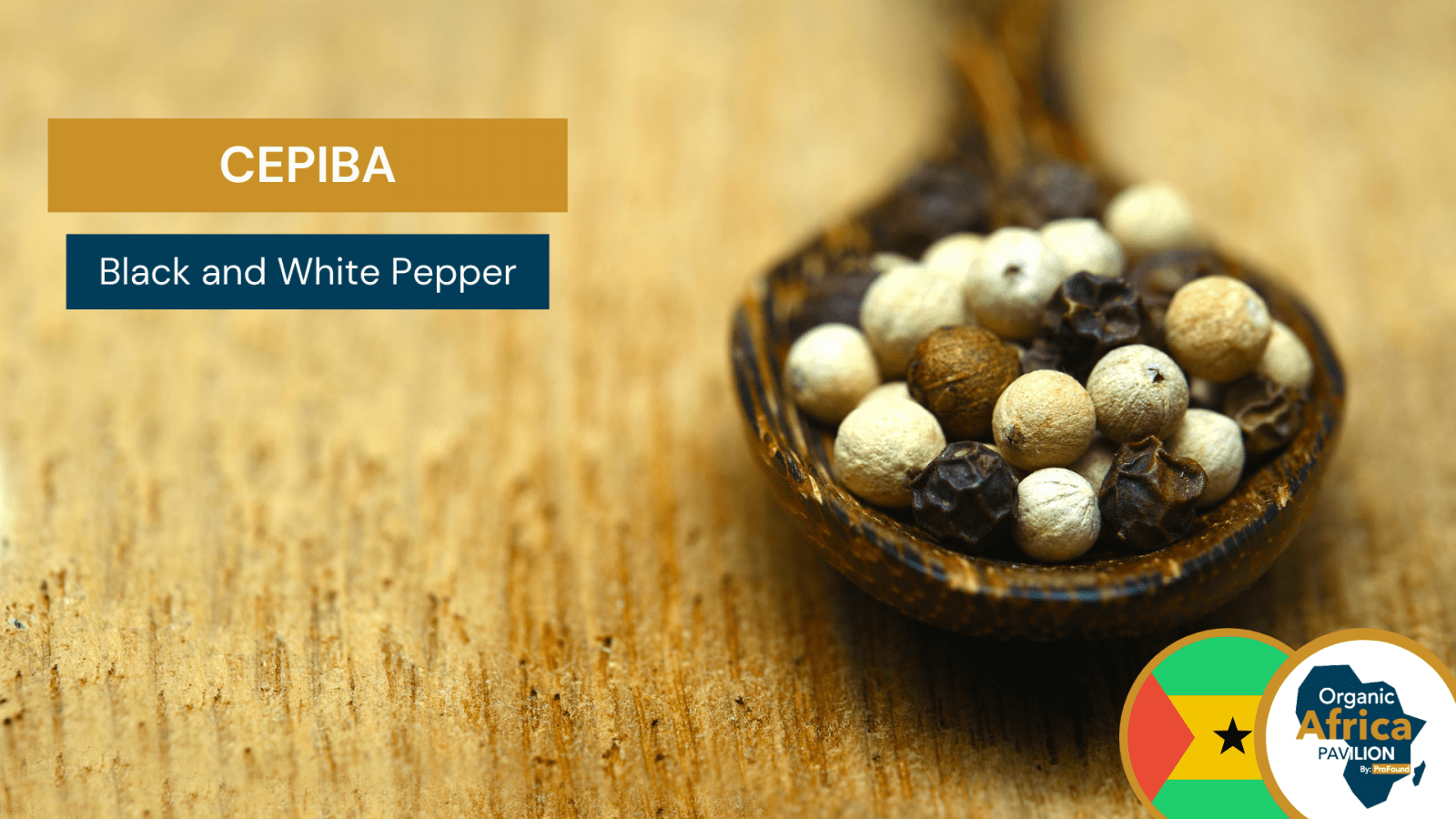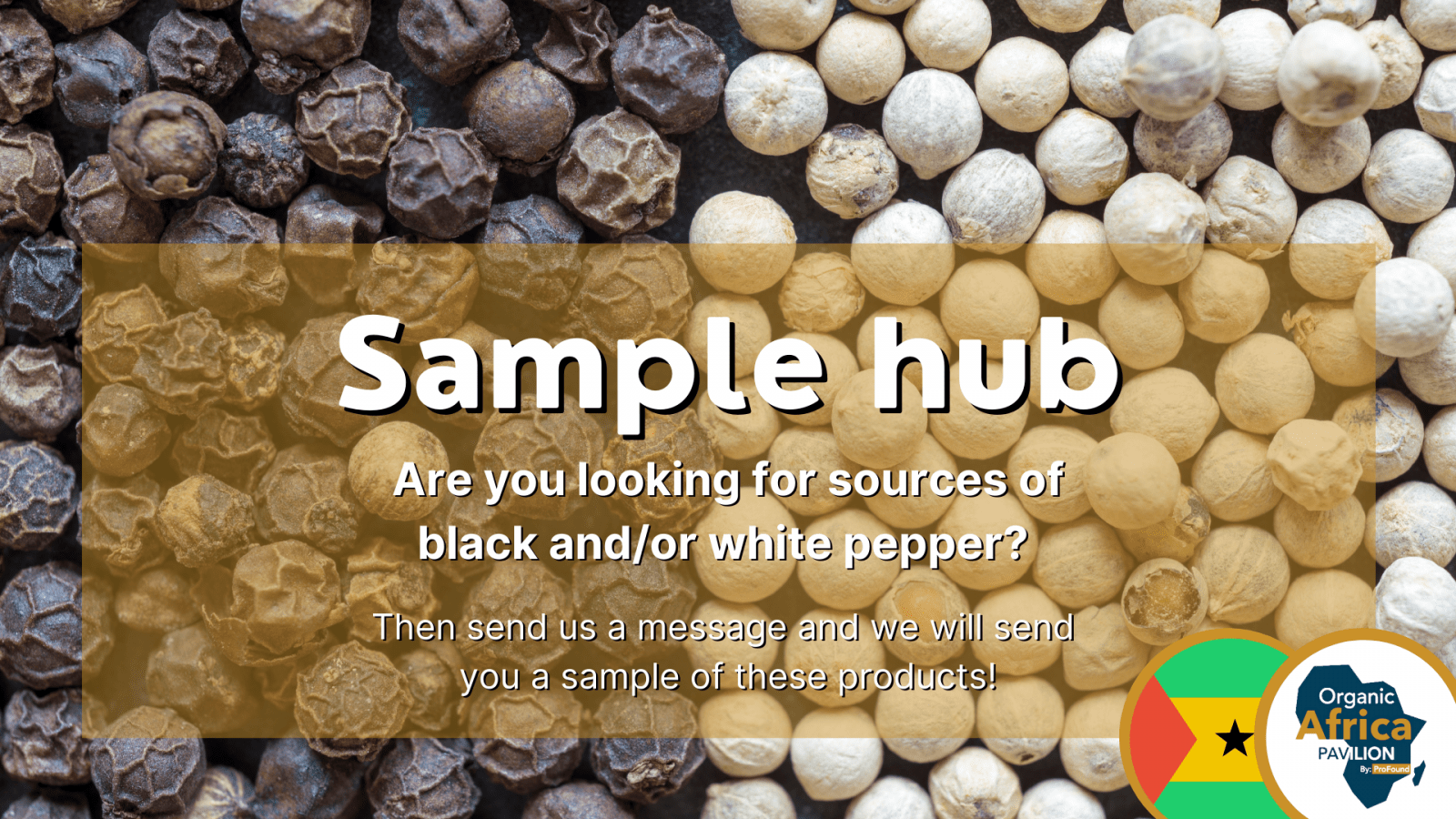Black and White Pepper at the Organic Africa Pavilion 2021
This year, ProFound will be presenting Black and White Pepper at the Organic Africa Pavilion 2021. Read the article below to know more about CEPIBA and their pepper from São Tomé and Príncipe.
CEPIBA
Pepper has been cultivated in São Tomé and Príncipe for a long time. The islands have an agroecological setting that has always favored the cultivation of pepper and vanilla. As agriculture was dominated by cocoa and coffee, pepper was not promoted until recently. It is now grown in small plots as a cash crop. It is a diversification of crops and a welcome agroecological improvement, especially for small farms.
Experimentation with export-quality black pepper began over fifteen years ago. The commercial viability became a reality only in the last ten years with the consolidation and expansion of the Cooperativa de Exportação de Pimenta e Especiarias (CEPIBA): the Export Cooperative of Pepper and Vanilla.
About CEPIBA
On the islands of São Tomé and Príncipe, producers are organized in a dynamic cooperative. From 2005 to 2007, the communities organized themselves into associations of pepper producers. On December 19, 2007, the First Constituent Assembly of CEPIBA was held in Río Lima. It consists of 22 member associations, 5 in the autonomous region of Príncipe and 17 in São Tomé. Each association has a statute and an elected leadership. Each one is represented in the cooperative by two delegates during ordinary or extraordinary assemblies. It has 438 paying members, of which 155 women and 283 men. The cooperative currently has 112 hectares of pepper plantations.
Each producer has his own plantation. The pepper is grown in a natural agroforestry system, such as shaded cocoa. It is combined with crops like breadfruit, mango, papaya, banana and other spices such as ginger, turmeric, melegueta pepper (Afromomum melegueta) but also taro (Colocasia esculenta).
Black and White Pepper
The pepper is exported in polypropylene bags with liner, 25 kg bags for white pepper and 20kg bags for black pepper. When the pepper is exported in containers, a cardboard paper protection handle is used. The organic origin and traceability are duly indicated. Export is done in 20ft containers. The production forecast for 2021 is of 30 tonnes, depending on the rains.
Certificates
The cooperative has an Internal Control System that allows group certification. Since 2009 CEPIBA is certified organic according to EU regulations by ECOCERT SA. The cooperative is also certified with Fair for Life.
Currently, the cooperative is finalizing the procedures to obtain the Protected Geographical Identification certification.
COLEACP FIT FOR MARKET Programme Sponsorship
The Organic Africa Pavilion is powered by ProFound and sponsored by COLEACP´s FIT FOR MARKET programme.
If you would like to know more about our Organic Africa Pavilion you can send us an email to: biofach@thisisprofound.com
Any questions?
If you have any questions about these companies, want to get in touch with them or request a sample of their products, don’t hesitate in writing us to biofach@thisisprofound.com



